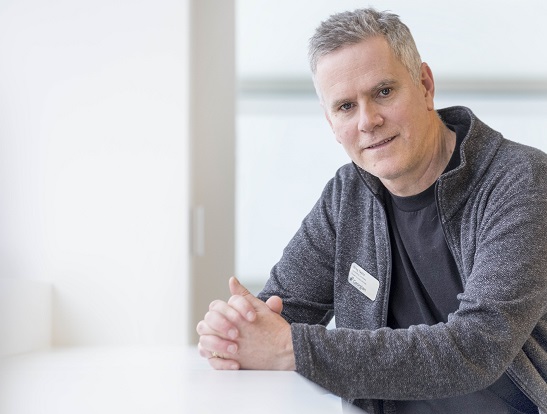Suicide prevention and awareness: Q&A with a Georgian counsellor
Sept. 10, 2019
September 10 is World Suicide Prevention Day. Here at Georgian, we all have a role to play in supporting each other and preventing suicide. With the right knowledge and skills, the vast majority of suicides can be prevented.
We sat down with Georgian counsellor Greg Taylor to talk about suicide and the stigma that surrounds it. Greg is a registered psychotherapist and has been a counsellor for 18 years.
How common is suicide? According to the Ontario Association for Suicide Prevention, approximately one out of four people know someone who has died by suicide.
How much does suicide impact our campus communities? LivingWorks Education reports that over a two-week period, one in 20 people have thoughts of suicide. Think about that in the context of your classrooms, work spaces or neighbourhoods. Suicidal thoughts are a lot more common than people think, but it’s still such a taboo subject.
What are some common myths about suicide?
- Myth: If a person is suicidal, they want to die.
- Truth: People rarely want to die. They simply can’t think of any other way to deal with, or lessen, their pain.
- Myth: If you ask if someone is considering suicide, you’ll plant the idea in their head.
- Truth: Asking them might save their life.
- Myth: People who say they’re suicidal, or attempt suicide, are seeking attention.
- Truth: Those who are more direct are often being direct because they know if they don’t share how they feel, they might do it. Once an attempt is made, the risk for future and more serious attempts increases significantly.
- Myth: Most suicides are impulsive.
- Truth: Suicide is rarely impulsive. People have usually thought about it for a long time. They send out warning signs to let others know they’re thinking about it.
Why do people commit suicide? We don’t use the term “commit suicide” any more. That comes from a time when suicide was considered illegal. We say, “took their life,” “killed themselves” or even “suicided.”
Suicide is a long-term solution to a short-term problem. It’s so final. But in that moment, a person can’t think of any other way to deal with their pain.
How do I know if I’m having suicidal thoughts? We all experience darkness in our lives. Sometimes we don’t want to admit how much pain we’re in. But if you want to die, wish you didn’t wake up, or are thinking about ways to kill yourself, those are all suicidal thoughts.
What should I do if I suspect someone may be suicidal? Don’t let it go. Ask them. And if you don’t feel comfortable asking them, find someone who will. We’re often afraid to ask because it’s scary or we don’t know what to do. Asking can save someone’s life.

What are some of the warning signs? We tend to call them invitations — behaviours, actions or comments that don’t quite sit right. Those invitations can include:
- talking or joking about suicide or dying
- making preparations for death, like giving away possessions, writing a suicide note or posting something like, “I wish I was dead” on social media
- negative self-talk, low self-esteem, low self-worth, self-contempt and even anger toward self
- poor hygiene, sleeping too much, lack of interest, low energy, insomnia
- increased use of alcohol or drugs
- uncharacteristic high-risk activity or impulsive behaviour
- isolation, withdrawal from people or activities
- expressions of hopelessness, helplessness, purposelessness
- extreme anxiety, mood swings, outbursts of rage, grief or violence
What resources or supports are available?
If someone is actively suicidal, call 911. We have a list of community resources and supports on the Georgian website too.
Anything else you wish to share? People need to be actively engaged in their own mental health recovery. A lot of us do nothing when we aren’t well. We withdraw, isolate, ignore, and abuse substances. But ignoring can mean that a momentary period of darkness turns into a major disorder…or worse, suicide.
We need to listen to our bodies, check in with ourselves and take action. Easier said than done, I know. But if we’re physically sick and don’t get better, we usually end up seeing a doctor. We need to break the stigma and fight the shame around asking for help and support.
Together, I believe we can foster a culture of openness and inclusiveness at Georgian – one where people, especially students, feel supported and safe enough to ask for help when they need it.
If you’re triggered reading this article or want to talk to someone, please refer to the resources on Georgian’s Mental Health and Well-being pages on MyGCLife and the employee portal. You may also want to visit the Start Talking website.
This article was originally published in November 2018. It was updated and re-shared in September 2019.